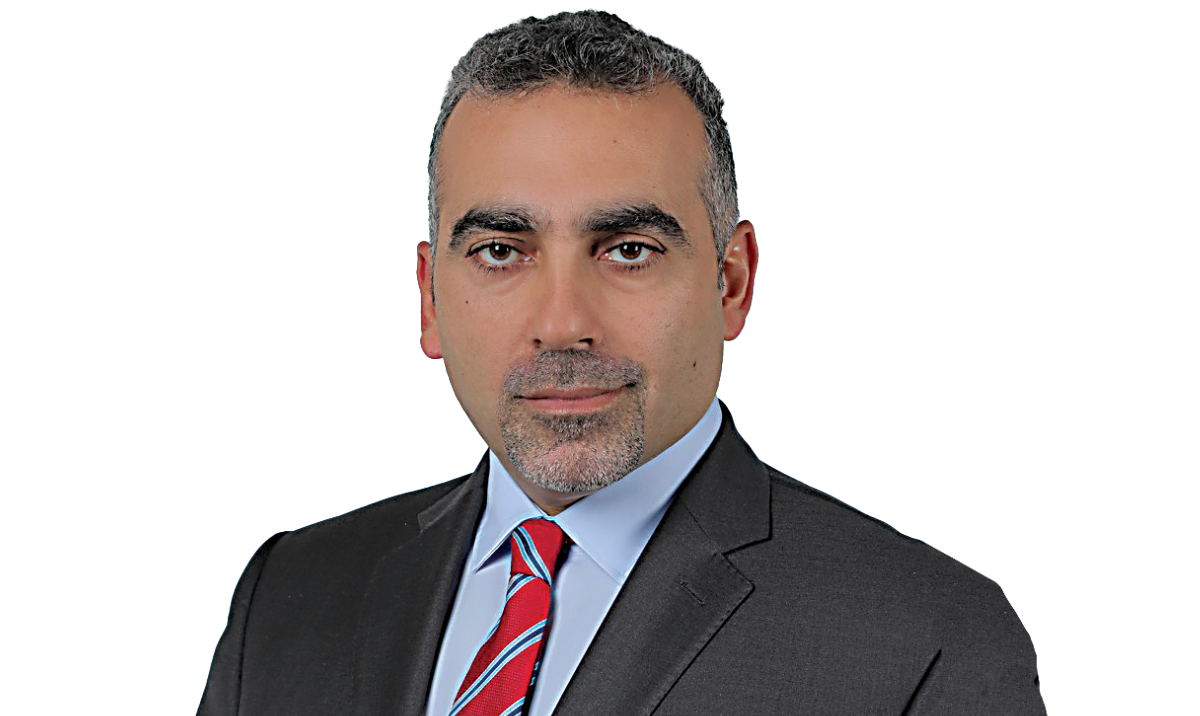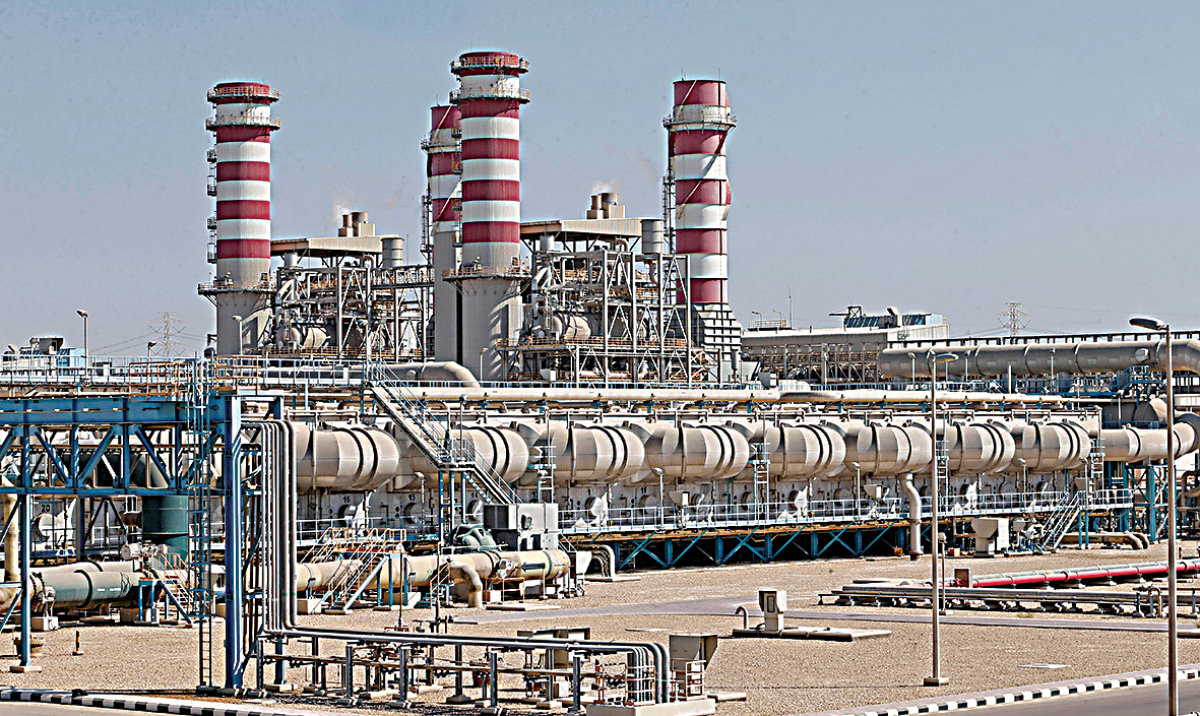JEDDAH: Saudi Arabia is tackling water scarcity with bold steps toward a sustainable future. Through its National Water Strategy and Vision 2030, the Kingdom is pioneering solutions to ensure long-term water availability.
Investing in desalination, wastewater reuse, and smart water management, Saudi Arabia is transforming the sector.
The National Water Co. supports Vision 2030 by accelerating projects, improving infrastructure, and implementing digital water management for sustainability.
Water sustainability strategy
Hany Labib, chief operating officer of international consulting and engineering organization Dorsch Middle East, told Arab News that Saudi Arabia’s structured approach to water sustainability ensures that security of the natural resource remains central to national development.
“The National Water Strategy and Vision 2030 have created a framework that balances infrastructure expansion, regulatory reforms, and advanced water management practices to address the Kingdom’s water scarcity challenges,” he said.
Labib noted that a key pillar of this strategy is investing in water infrastructure, highlighting his company’s partnership with Saudi Arabia’s NWC to oversee 253 projects, enhancing efficiency and service delivery.
“These projects are designed to reinforce water distribution networks, improve wastewater treatment, and ensure long-term water reliance and a positive customer experience,” he added.

Public awareness campaigns underscore conserva-tion’s importance amid climate pressures and population growth.
Adham Sleiman, water utilities expert at Kearney MEA
Another key initiative is Saudi Arabia’s focus on optimizing resource use by reducing water losses and maximizing wastewater reuse.
“With a considerable investment, this key initiative is not just addressing immediate water demands but also ensuring the sustainability of resources for future generations. By aligning sustainability goals with economic and environmental objectives, Saudi Arabia is setting a benchmark for comprehensive water management strategy within the region,” said Labib.
Smart water tech push
Saudi Arabia is leveraging advanced technologies to drive long-term sustainability and operational efficiency in the water sector.
Labib highlighted future technologies shaping Saudi Arabia’s sustainability and efficiency goals, noting the Kingdom’s leadership in smart water management solutions.
“With a growing number of water and wastewater projects in motion, technology is playing an increasingly critical role in optimizing resources, reducing waste, and ensuring long-term viability,” he said.
The Dorsch Middle East official explained that one of the most transformative innovations is the expansion of treated wastewater reuse, reducing reliance on freshwater sources while meeting industrial and agricultural needs.
“In parallel, real-time digital monitoring systems are improving network efficiency by detecting leaks, tracking consumption patterns, and optimizing distribution,” he said.

Labib noted that low-energy desalination and next-generation filtration technologies will boost sustainability in water production.
He emphasized that through these innovations, Saudi Arabia is not only securing its own water future but also creating scalable solutions that other arid regions can adopt.
“In a fast-changing world of technology, Saudi Arabia seeks to be at the forefront of emerging technologies and make use of data in their water investment decisions. AI is a new tool which can greatly assist in the analysis of data arising from smart water systems including customer usage patterns,” said Labib.
Integrated water strategy
Adham Sleiman, water utilities expert at Kearney MEA, highlighted Saudi Arabia’s integrated water sustainability approach under its national strategy, emphasizing its long-term vision.
“The Kingdom advances desalination, groundwater conservation, and wastewater reuse, as well as leveraging smart technologies and renewable energy. Investments in digital monitoring, smart metering, and AI-driven leak detection enhance efficiency,” he said.
Sleiman noted that the strategy strengthens policy frameworks and governance to optimize water use, highlighted by the recent establishment of the Saudi Water Authority. In 2024, the NWC treated 2.1 billion cubic meters of wastewater, ensuring water security, sustainability, and efficiency. “These efforts reinforce Saudi Arabia’s commitment to a resilient water future,” Sleiman said.

Saudi Arabia is at the center of water sustaina-bility initiatives, hosting major forums like the Saudi Water Forum and the One Water Summit.
Azamat Zhangeldin, manager, energy and process industries at Kearney MEA
PPPs driving innovation in sector
As for public-private-partnerships in the sector, Sleiman emphasized that PPPs are key to advancing Saudi Arabia’s water infrastructure in alignment with Vision 2030, driving innovation and investment in the sector.
“The Saudi Water Partnership Co. has attracted over SR45 billion ($12 billion) in private sector investments, fostering efficiency and innovation in water production and treatment. Saudi water ecosystem’s collaborations with international firms introduce advanced technologies, such as energy-efficient desalination and smart water management systems,” Sleiman said.
He added that these partnerships distribute risks and leverage private sector expertise, leading to improved service quality and accelerated project delivery. “By expanding PPP frameworks, Saudi Arabia is strengthening its water security and promoting sustainable resource management,” said Sleiman.
Addressing climate risks
Azamat Zhangeldin, manager, energy and process industries at Kearney MEA, highlighted how Saudi Arabia is preparing to address climate-related risks, such as prolonged droughts or shifting rainfall patterns, to ensure long-term water availability and resilience.
“Saudi Arabia is at the center of water sustainability initiatives, hosting major forums like the Saudi Water Forum and the One Water Summit, emphasizing integrated policies, economic development, and accelerating UN SDG (sustainable development goal) 6,” he told Arab News.
He added that recognizing limited freshwater sources, the Kingdom has invested heavily in desalination, with 33 plants and 139 purification facilities producing 11.5 million cubic meters daily.
“Public awareness campaigns underscore conservation’s importance amid climate pressures and population growth,” he said, concluding that these solutions, encompassing desalination, purification, dam construction, and flood management, enhance water resilience and storage, ensuring long-term availability and mitigating climate-induced risks.
Balanced approach
Dorsch Middle East’s Labib emphasized that sustainable urban planning is key to developing water security, citing initiatives such as Green Riyadh, which incorporate water-efficient irrigation and landscaping for long-term conservation.
He added that through strong policies, innovative technologies, and large-scale infrastructure projects, Saudi Arabia is creating a resilient, efficient water system that ensures secure access for future generations.
“The Kingdom’s ability to implement projects at scale while maintaining efficiency and resource optimization makes it a model for other nations facing similar water challenges,” said Labib.
He believes Saudi Arabia is creating a replicable blueprint for sustainable water management, and added: “The Kingdom’s success lies in its centralized water strategy, where strong governance frameworks, public-private partnerships, and technological advancements work in unison to achieve long-term water security.”



























